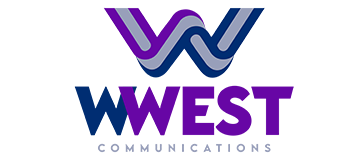Need assistance?
Wahkiakum West Internet Customer Service
Phone: (360) 465-2211
E-mail: support@wwest.net
Internet Technical Support: 465-HELP (4357)
Customer Log-ins
Useful computer and Internet advice
Keep your operating system updated
Computer viruses
Purchase Anti-Virus software, install it, and keep current with updates; to ensure you are automatically protected. Two of the top PC anti-virus software applications are Kaspersky and McAfee. For MACs (Apple), we recommend Virus Barrier. Daily or weekly, get the latest virus protection files to keep up with the new viruses that have been released since you purchased your software.
Buy legal copies of all software you use.
Scan all files on disks AND email you receive from other people.
Computer viruses are, simply, executable computer programs. Like biological viruses, they find and attach themselves to a host. After a computer virus attaches to, or infects, a file or other part of your system; it spreads to neighboring items. Attaching itself to an item that is widely used by the general public or where file sharing is common, allows the virus to spread as widely as possible. The more successful the virus is in spreading, the greater its chances of survival. There are many common misconceptions about what computer viruses actually do and what they are incapable of doing. For example:
A virus CAN infect…
- Program files, non-file areas used on computer start-up (boot records), and data files with macro capabilities
- Data disks and disks used to transfer programs
- Your computer when you download and use files from an on-line service
- A file before it is attached to an email message
A virus CAN NOT infect…
- Hardware, such as keyboards and monitors, graphic files, data files without macro capabilities, software items other than program files
- Write-protected disks
- Your computer when you read messages from an on-line service
- Text-based email messages
- While viruses are capable of damaging systems, they cannot do the following:
- Viruses don’t infect files on write-protected disks.
- Viruses don’t infect compressed files. However, applications within a compressed file could have been infected before they were compressed. Some viruses are known to insert copies of themselves in already-created archives.
- Viruses don’t infect computer hardware such as monitors or computer chips; they only infect software. They can, however, damage certain types of hardware such as flash-memory.
- Viruses can be controlled at the desktop, the file server, the gateway, and on e-mail servers. Desktop and server anti-virus applications allow for virus scan and detection on an on-going and periodic basis, as well as each time a file is downloaded or a computer is booted. Computer users SHOULD have anti-virus software running full-time in the background, scanning all files and discs the moment they are accessed.
What is a DDoS Attack?
We experienced a DDoS (Distributed Denial of Service) attack on September 9, 2018
The timeframe was very minimal but, it did affect internet service. Unfortunately, there are no warnings for DDOS attacks. These attacks are basically a flood of traffic to your internet feed. The attack severely affects your bandwidth because it fills up and this causes a loss of bandwidth to end users. It’s kind of like those computer-generated phone calls that we all get and hate and there is no way to stop them. However, DDOS attacks are very sophisticated and can be difficult to detect. These attacks happen around the world and it is kind of mind boggling to see the activity – check it out https://threatmap.checkpoint.com/ThreatPortal/livemap.html.
